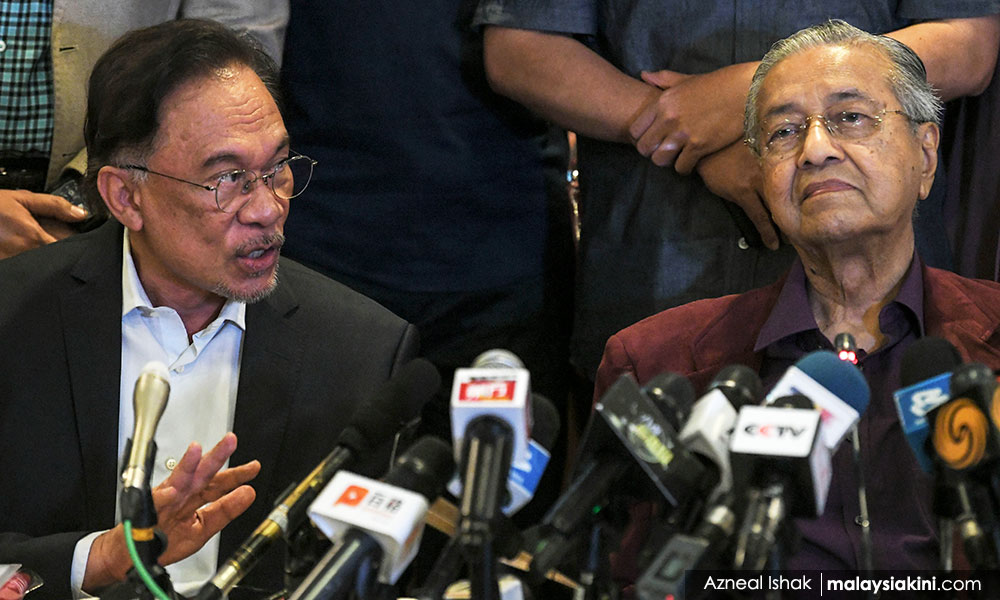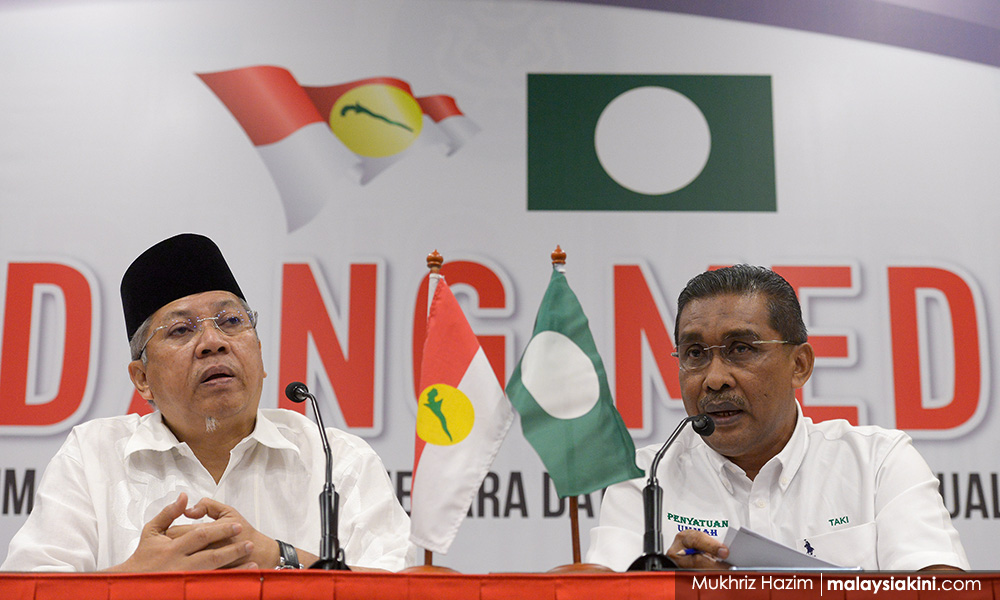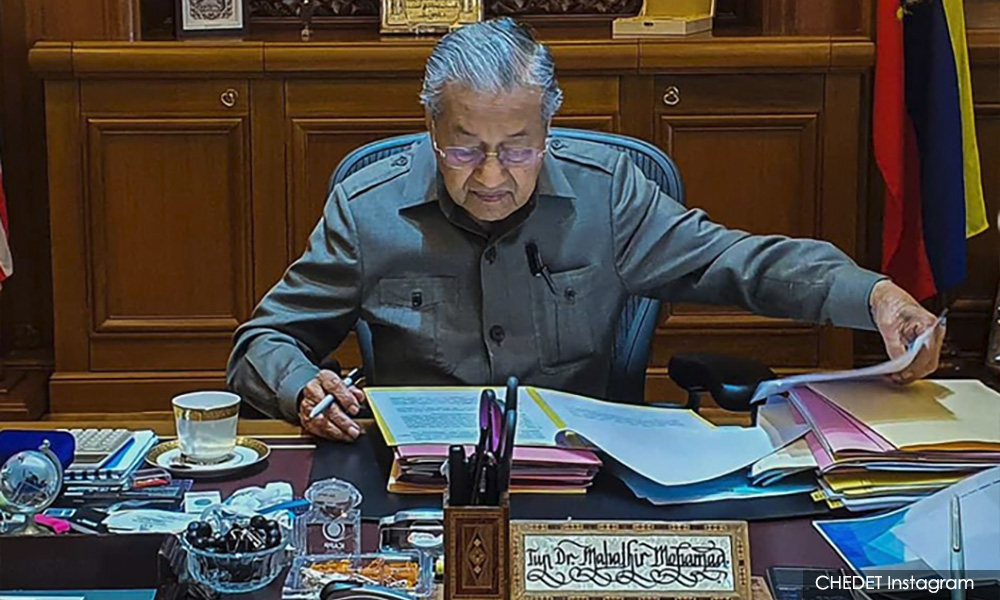
The last four days have been filled with political intrigue and uncertainty, as the contestation for power has led to the collapse of the Pakatan Harapan government, the resignation and return of Dr Mahathir Mohamad to the prime minister position and greater momentum in calls for new elections.
It is useful to dissect what is happening (as best one can in a fluid situation) and lay out the key issues/factors that are shaping this transition period.
The big picture
Malaysia is experiencing a second non-Umno led government change in its history. The first was the Harapan government that was brought into power after GE14 that collapsed on Monday. A change and collapse of government are a normal part of a multi-party coalition systems, although the drama surrounding how this has evolved has been uniquely Malaysian.
While the country has been held hostage to elite wrangling, and elites across the political parties are responsible in part for putting the country in this situation, the process has been largely confined at the elite level, legal and peaceful.
Malaysia’s Agong has played an important role in mediating the elite conflicts and assuring that the process remains constitutional. His broad engagement has been a stabilising national force, that reflects a greater role of the royalty in the political landscape.
The contenders
Nine major political parties/groupings are vying for power. These are the Muafakat coalition of 1) Umno and 2) PAS. The East Malaysian parties of 3) Sarawak’s GPS and 4) Sabah’s Warisan. The core parties of Harapan, 5) PKR led by Anwar Ibrahim, 6) DAP and 7) Amanah, and the Harapan defectors of 8) Bersatu and 9) formerly PKR Azmin Ali cartel.
All of these parties have enough seats in the national parliament to influence the viability of a new government. There are also a number of additional smaller parties and independents who are also in the mix as sides try to form numbers for a parliament majority.
Malaysia’s main political parties/groupings are driven by elite interests in a deeply embedded patronage system. As I have noted earlier, a key driver of what has been happening has been to secure positions and power for themselves and their business allies. The inability of the elites to resolve conflicts and reach compromises is clearly evident, as many (although not all) have put their own interests over that of the country.
At the same time, the struggle for power has revolved around leadership loyalties. The question of who should and who will lead the country has been at the centre of the collapse of government – as the defectors (Bersatu and the cartel) have refused to accept PKR leader Anwar Ibrahim as a new prime minister, holding onto Mahathir as their power lifeline.

The core Harapan parties – PKR, DAP and Amanah – have stayed loyal to Anwar, while the East Malaysian parties have professed loyalty to Mahathir (to date). Umno and PAS joined the Mahathir bandwagon to trigger the collapse of the Harapan government but were quick to change course when Mahathir did not accept working with Umno in a new coalition.
A clear national leader from Umno or PAS has yet to emerge, as the party is divided on who to support. Rather, they are more focused on who they do not want – Mahathir (who continues to thwart their control of power), and for most of these party members (although not all), Anwar.
As Malaysia’s political system revolves around the person (as opposed to the party) who can command the most support and then form the government, the role that personality and the person plays is a core feature.
Behind power and personality is party identity – how the parties legitimise and portray their actions. There are two main issues here – ethnic representation and reform.
PAS and Umno appeal to Malay and Muslim nationalism, framed as Malay ‘unity’ and representation. Umno as it currently led is not interested in reforming the system but protecting it. For most Umno leaders they see themselves as the system to be protected. PAS would like to bring about reforms, greater Islamic governance, but the content and practice of this remain unclear. Warisan and GPS appeal to state nationalism and are vested in reforms in the federal-state relationship, greater distribution of power to Sabah and Sarawak.
Harapan parties appeal to calls for reform, notably better governance and inclusion and appeal across races. They have less support among the Malay community, but they do have a multi-ethnic base. The DAP, which has been the most open in calling for reforms and seen as exclusively representing non-Malays, especially Chinese, has been a target of Malay nationalist sentiments.
Bersatu and the Azmin Ali cartel also appeal to reform, but the grouping has defined itself in terms of loyalty and disloyalty to Mahathir.
The evolving contest
The situation has changed rapidly over the past few days. The power grab that was openly launched by the Azmin Ali cartel, the Muafakat coalition and Bersatu last Sunday failed to get the numbers for support.
Ultimately Mahathir was unwilling to work with the parties in the Muafakat coalition, notably Umno (due to their baggage and demands). The public disassociation of Mahathir from the Muafakat happened on Monday (after my last piece), after months of backdoor negotiations in which Mahathir’s ‘divide and rule’ politics and this contradictory leadership set in place conditions for the power grab to evolve.
The attempt to take over the government was prevented when Mahathir refused to participate and through the engagement of different political parties and leaders by the Agong.

Umno and PAS are now calling for new elections as the backdoor option has not secured the numbers they needed. With stronger grassroots, the advantage of being opposition to attack the government, and leverage from their representation of the Malay community, they believe this is the best option to return themselves to power.
Harapan is trying to be reborn as government in new (and old) ally relationships. The core parties have stayed loyal to one another and to Anwar. They have adopted a pragmatic approach in engagement, pledging loyalty to Mahathir. The electoral fortunes for Harapan are more uncertain in a new election, as there is considerable disgruntlement among voters about the reform process and economic deliverables.
This said, a new election will be a new situation. It will however offer more uncertainty for Malaysia, and as my next piece will show, not necessarily offer the clarity in outcome that political actors and many civil society activists believe it will.
Warisan and GPS are using their positions as kingmakers to their advantage, pushing primarily for positions at the national level but also greater equality for the states they represent.
Bersatu and the Azmin Ali cartel are trying to stay relevant and secure safe landings, with split loyalties in the fluid situation. They are professing more loyalty to Mahathir but have been caught by the political manoeuvrings. Some Bersatu leaders are vested in a Mahathir ‘unity’ government as they think it will include them.
Prioritising stability
Mahathir’s current focus has been on assuring stability in a situation that he has played a role in creating by not clearly laying out a transition plan and adequately working to foster cooperation rather than competition in among political parties. He did not keep his own loyalists in check. A desire for stability underscores the motivations and support to form a new government. The larger the numbers, the less likely a new government will fall. The Agong has supported this by giving Mahathir a window to form a government.

For Harapan, the willingness to support Mahathir signals their support for stability in the system and the recognition that compromise and cooperation are necessary in the context of a fragmented political landscape. They also realise that more multi-ethnic cooperation is needed through a broad coalition framework and an essential ingredient for securing inclusive representation in Malaysia’s multi-ethnic context. The core Harapan parties alone do not have the numbers to form a government without the support of others.
In the leadership contest, Anwar remains the leading contender for the next prime minister. There are new contenders in the mix now pushing for the position. The deal that was reached around GE14 no longer holds the same sway and will have to be renegotiated. The opposition to Anwar’s leadership has been clearly shown in the power grab. The inability of Anwar to deliver his own numbers on Monday shows that his support was limited. For now, Anwar is dependent on elite negotiations for power, as he does not have his own public mandate.
Mahathir may hold the key position of power as prime minister. He appears stronger, returned to power for the third time in a new capacity as an ‘independent,’ linked with a new (and old) set of allies. His actions will determine the government for the future, but the reality is that Mahathir’s time is limited.
Not only his age, but the collapse of his government and weaknesses in deliverables of this government before the power grab have eroded his influence and public support. The time to set a clear direction for Malaysia’s future leadership has long been reached. Over the days ahead, the statesman role that Mahathir will (or will not) play will be crucial.
Any new government with the different configurations will set the direction for the country – how inclusive it will be and whether it will engage in reform and to what degree. An important element will not just be the buy-in of the elites into the new government, but the acceptance of the opposition of a new government.
If negotiations fail, there will be a dissolution and new elections. New elections offer greater uncertainty, and while they democratically bring the people into this process – the people who are angry for being left and sold out, the people who want a different Malaysia and are watching the political drama with concern – they do not guarantee an inclusive or even stable outcome. This will be the subject of my next piece.
Malaysia’s second non-Umno led change of government has been challenging to say the least. It is evolving. Malaysians should stand proud of themselves for their patience and discernment as their leaders in politicking. While the economy has taken a hard hit, and Malaysia has once again become international headlines for its political drama, the resilience of the Malaysian people, the continued functioning of government and the economy speak to how strong the country is. It is hoped in the days ahead that leaders will prioritise Malaysia rather than themselves.
BRIDGET WELSH is a Senior Research Associate at the Hu Feng Centre for East Asia Democratic Studies, a Senior Associate Fellow of The Habibie Centre, and a University Fellow of Charles Darwin University. She recently became an Honorary Research Associate of the University of Nottingham, Malaysia's Asia Research Institute (UNARI) based in Kuala Lumpur. - Mkini


No comments:
Post a Comment
Note: Only a member of this blog may post a comment.